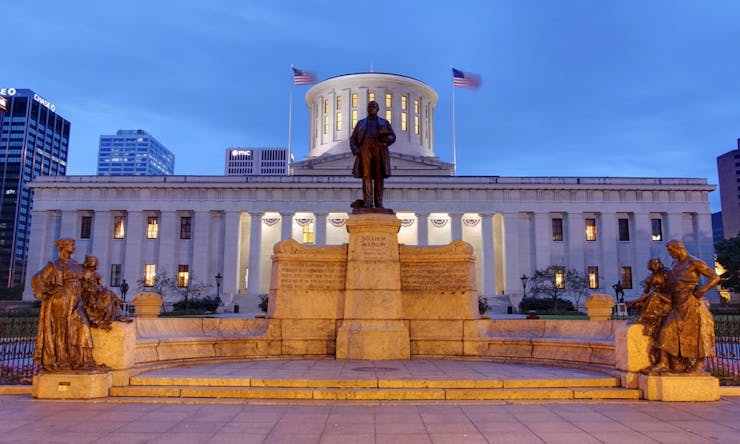COLUMBUS, Ohio (AP) — Apparently unconstitutional portions of Ohio's medical marijuana law, which set aside a percentage of the state's pot licenses for minorities, were spotted during legislative debate but left in the bill to gain needed votes, a key lawmaker says.
State Sen. Bill Seitz, a Cincinnati Republican, said legally prickly provisions exposed by The Associated Press in June may require changes. The law takes effect Sept. 8, at which point a new panel will begin laying out a blueprint for how the new industry will work.
"I certainly think it's something the (Medical) Marijuana Advisory Committee ought to take a look at," Seitz said. "Because we're not just talking about government contracts, but government licenses." Changes may wind up in a marijuana corrective bill that emerges in the lame duck session.
The benchmarks are contained in legislation that was fast-tracked by the Republican-controlled Legislature to head off a medical marijuana proposal that was on its way to Ohio's fall ballot. Ohio is the 25th state to legalize medicinal cannabis.

Republican Ohio state Sen. Bill Seitz speaks during a floor debate in Columbus, Ohio. AP Photo
They require at least 15 percent of Ohio's cultivator, processor, retail dispensary and laboratory licenses to go to the businesses of one of four economically disadvantaged minority groups — blacks, Hispanics, Asians, or Native Americans — so long as an adequate number apply.
Minority Democrats sought the provisions. State Rep. Dan Ramos, a Latino Democrat from Lorain who offered the proposal, told the AP last month that he and members of the Ohio Legislative Black Caucus felt it was important to assure minority communities disproportionately punished under existing marijuana laws some benefit when medical marijuana was legalized.
However, such racial preference rules — even if well-intended — are a violation of the U.S. Constitution and have generally failed to stand up in court, the AP reported citing legal scholars.
Legislators of both parties in both the Ohio House and Senate said at the time they were unaware of this, but Seitz said he brought it to people's attention at the time.
Seitz had drafted an amendment to fix the unconstitutional sections — a simple fix that would have made the 15 percent a goal as opposed to a requirement. However, he said he never introduced the change, because champions of the bill said it might derail the delicate compromise that had been struck to get it passed.
The legislation cleared the Senate by just three votes. Eleven Republicans opposed it, while six Democrats supported it — three of them members of the Black Caucus.
Most caucus members interviewed who had supported the bill said it was a whole package of Democratic-backed additions that led to their support, not just the 15 percent license provision.






